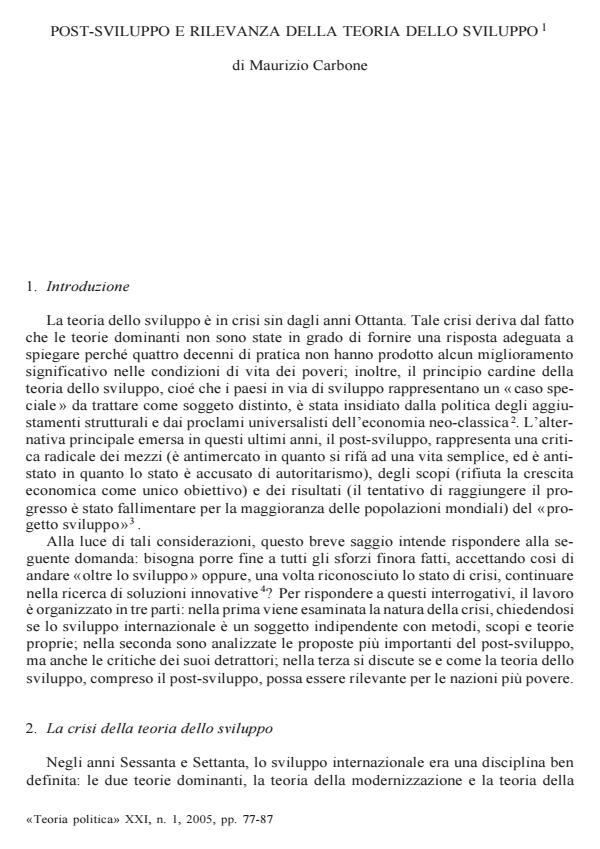Post-sviluppo e rilevanza della teoria dello sviluppo
Titolo Rivista TEORIA POLITICA
Autori/Curatori Maurizio Carbone
Anno di pubblicazione 2005 Fascicolo 2005/1
Lingua Italiano Numero pagine 11 P. Dimensione file 39 KB
DOI
Il DOI è il codice a barre della proprietà intellettuale: per saperne di più
clicca qui
Qui sotto puoi vedere in anteprima la prima pagina di questo articolo.
Se questo articolo ti interessa, lo puoi acquistare (e scaricare in formato pdf) seguendo le facili indicazioni per acquistare il download credit. Acquista Download Credits per scaricare questo Articolo in formato PDF

FrancoAngeli è membro della Publishers International Linking Association, Inc (PILA), associazione indipendente e non profit per facilitare (attraverso i servizi tecnologici implementati da CrossRef.org) l’accesso degli studiosi ai contenuti digitali nelle pubblicazioni professionali e scientifiche.
Development theory has been in crisis since the 1980s. This crisis reflects the fact that dominant theories have not been able to provide adequate answers to explain why the developing world is still underdeveloped. The main alternative emerged in the past decade, post-development, represents a radical critique of means, goals, and outcomes of the «development project». Therefore, the question that this essay tries to answer concerns how development theory, including post-development, can help us improve the quality of life in the developing world. The «relevance» of development theory cannot be achieved by re-proposing lost paradigms but only by incorporating new knowledge, including post-development thinking. Development is no longer state-led, as suggested by modernization and dependency theory; it is no longer market-led, as suggested by neo-liberalism; it is no longer society-led, as suggested by alternative development: rather, it must be a combination of all these perspectives.
Maurizio Carbone, Post-sviluppo e rilevanza della teoria dello sviluppo in "TEORIA POLITICA" 1/2005, pp , DOI: